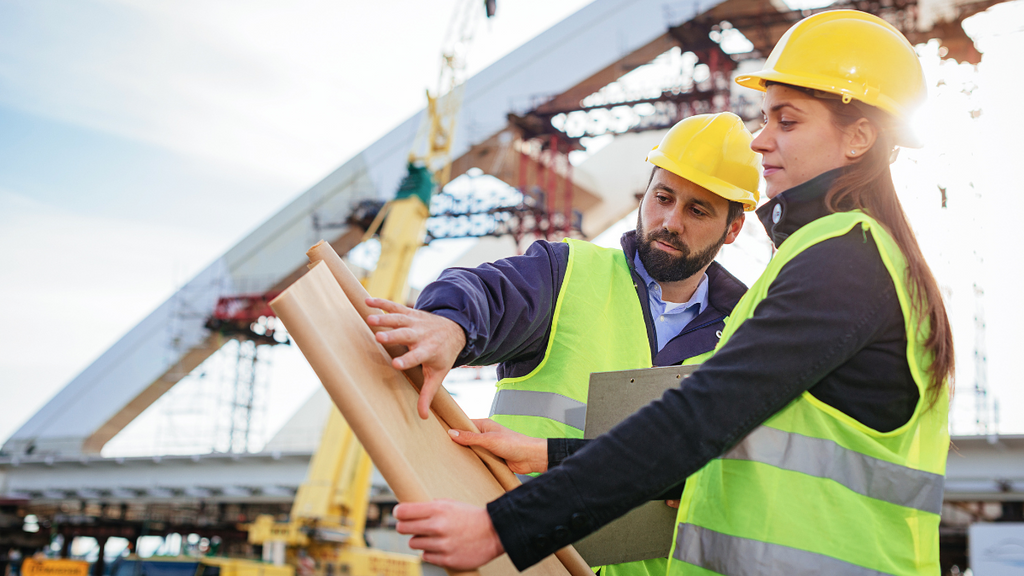What Does Geotheta Mean?
What Does Geotheta Mean?
Blog Article
Get This Report about Geotheta
Table of ContentsGeotheta Things To Know Before You Get ThisSome Ideas on Geotheta You Need To KnowNot known Facts About GeothetaThe Facts About Geotheta UncoveredThe smart Trick of Geotheta That Nobody is Discussing

They perform site investigations, collect samples, carry out laboratory examinations, and analyze data to evaluate the suitability of the ground for building and construction tasks - Consulting Engineer. Based on their findings, geotechnical designers offer referrals for structure design, slope stability, retaining structures, and reduction of geotechnical threats. They team up with other specialists, such as architects, architectural engineers, and building teams, to ensure that geotechnical considerations are integrated into the general task design and execution
By evaluating the habits and residential or commercial properties of dirt and rock, they can recognize possible geotechnical hazards such as landslides, dirt negotiation, or incline instability. Their knowledge helps stop failings or mishaps that might endanger lives and residential or commercial property. Here are some comprehensive obligations and obligations of a geotechnical designer: Site Examination: Geotechnical engineers conduct website examinations to gather data on subsurface problems.
They interpret the information to recognize the residential or commercial properties and habits of the soil and rock, including their toughness, leaks in the structure, compaction qualities, and groundwater problems. Geotechnical Evaluation and Style: Geotechnical designers analyze the information gathered throughout site investigations to analyze the stability and suitability of the website for building projects. They do geotechnical calculations and modeling to review aspects such as birthing capability, negotiation, incline security, side planet pressures, and groundwater flow.
The 8-Minute Rule for Geotheta
Foundation Design: Geotechnical engineers play an essential role in developing structures that can safely support the intended structure. They evaluate the soil conditions and tons requirements to identify the proper structure type, such as shallow structures (e.g., grounds), deep structures (e.g (https://filesharingtalk.com/members/599923-geotheta)., stacks), or specialized methods like dirt enhancement. They think about variables such as settlement restrictions, birthing capability, and soil-structure communication to create ideal structure layouts
They evaluate building and construction strategies, display site activities, and conduct field evaluations to validate that the design suggestions are adhered to. If unforeseen geotechnical issues occur, they examine the scenario and give referrals for removal or adjustments to the design. Risk Analysis and Mitigation: Geotechnical engineers assess geotechnical threats and risks connected with the task site, such as landslides, liquefaction, or soil erosion.

Cooperation and Communication: Geotechnical engineers function carefully with various other professionals associated with a job, such as architects, architectural engineers, and building and construction teams. Reliable interaction and cooperation are important to integrate geotechnical factors to consider into the overall task style and building procedure. Geotechnical engineers give technical proficiency, answer queries, and make certain that geotechnical demands are satisfied.
How Geotheta can Save You Time, Stress, and Money.
Here are some kinds of geotechnical designers: Structure Designer: Structure engineers focus on creating and assessing structures for structures. They analyze the dirt problems, tons needs, and site attributes to identify the most ideal structure kind and design, such as shallow structures, deep structures, or specialized techniques like pile structures.
They assess the elements influencing incline security, such as dirt properties, groundwater conditions, and incline geometry, and create strategies to stop incline failings and reduce threats. Earthquake Designer: Earthquake designers specialize in analyzing and designing structures to withstand seismic forces. They examine the seismic danger of a website, evaluate soil liquefaction potential, and establish seismic layout standards to guarantee the safety and security and resilience of structures throughout earthquakes.
They do field screening, collect examples, and examine the accumulated information to identify the dirt buildings, geologic formations, and groundwater conditions at a site. Geotechnical Instrumentation Engineer: Geotechnical instrumentation engineers concentrate on surveillance and determining the habits of dirt, rock, and structures. They install and keep instrumentation systems that check variables such as soil settlement, groundwater degrees, slope movements, and structural displacements to analyze performance and supply early cautions of possible concerns.
Our Geotheta PDFs
They perform examinations such as triaxial examinations, loan consolidation tests, direct shear tests, and permeability examinations to collect data for geotechnical evaluation and layout. Geosynthetics Designer: Geosynthetics designers focus on the design and application of geosynthetic materials, such as geotextiles, geogrids, and geomembranes. They make use of these products to boost dirt security, reinforce slopes, provide drainage options, and control erosion.
They often tend to be investigative individuals, which implies they're intellectual, reflective, and investigative. They are interested, methodical, sensible, analytical, and rational. Some of them are additionally social, meaning they're kind, generous, cooperative, person, caring, practical, empathetic, sensible, and friendly - Engineer of Record.
In the office atmosphere, geotechnical engineers utilize specialized software devices to carry out calculations, create layouts, and analyze information. They prepare records, testimonial project specs, communicate with clients and staff member, my response and coordinate task activities. The office setup gives a favorable environment for research study, evaluation, and cooperation with various other professionals included in the task.
6 Easy Facts About Geotheta Explained
They frequently go to job sites to carry out site examinations, evaluate geotechnical conditions, and gather data for analysis. These gos to involve taking a trip to different places, sometimes in remote or challenging terrains. Geotechnical engineers may perform soil sampling, conduct examinations, and screen construction activities to make sure that the geotechnical elements of the project are being applied properly.
Geotechnical designers likewise function in specialized geotechnical labs. In these facilities, they conduct experiments, do tests on soil and rock examples, and analyze the design properties of the materials. Geotechnical laboratory designers work thoroughly in these environments, managing testing devices, operating tools, and videotaping data. They work together with other lab staff to make certain precise and reliable testing outcomes.
Report this page